#96 Regate – Management of hypergrowth, business partnership, the recipe for generating +10 customers in 000 years, with Laura Pallier
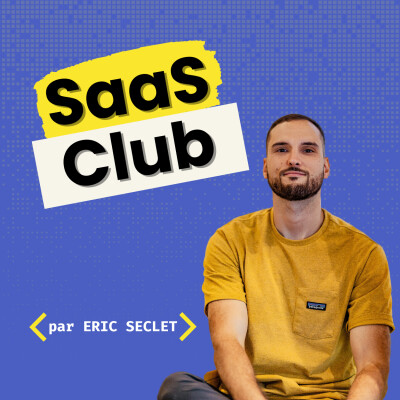
SaaS Club
#96 Regate - Management of hypergrowth, business partnership, the recipe for generating +10 customers in 000 years, with Laura Pallier
Description of the episode
Going from CFO to CEO of a hypergrowth startup. This is Laura's incredible journey over the last 3 years. However, she tackled a difficult market: a target allergic to innovation, a complex product to design, fierce competition. A challenge that she met with flying colors with her partner, Alexis, ex-CEO of Mailjet.
Inside the mind of a CEO # 99
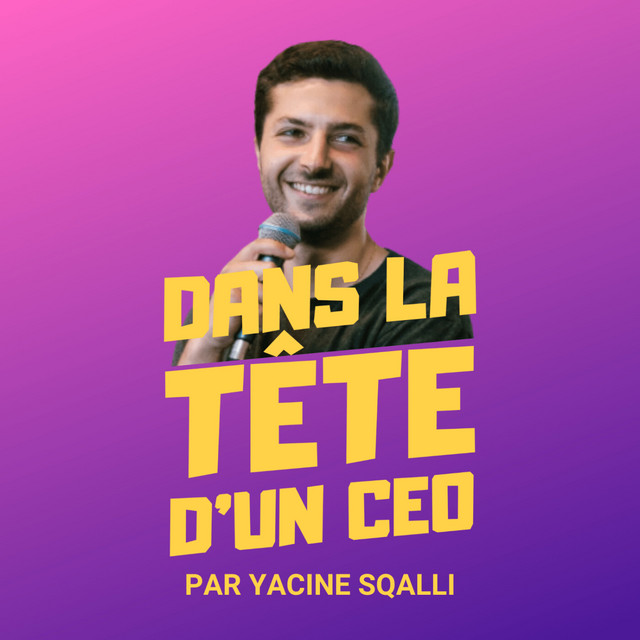
Inside the head of a CEO
#99 Louis Chatriot (Alma): part 2 on failure, entrepreneurship, and radical humility
Description of the episode
"It's okay to be wrong, and it's important that you understand that." 🦸 ♀️ For this new episode, we discuss with the excellent Louis Chatriot, CEO and co-founder of Alma, who answers Yacine Sqalli's questions. Alma is our French nugget of Buy Now Pay Later. Since 2018, the startup has been offering payment in installments to SMEs. Alma is above all 400 employees, 10 merchants supported, 000 billion € in volume of transactions each year, more than 1,5 million euros raised (not counting half a billion € in debt). The startup is a member of the NEXT 200. 🇫🇷 🦄 Louis went through Stripe, learned to code at 40 years old, and plays Tetris during his calls (game he developed himself). An episode without filter! On the program for this second part 🌶️ Rationality in entrepreneurship 🌀 Corporate culture 🦾 Its most beautiful fails 💎 Radical humility 🛎️ A resale of Alma? Thank you Louis for your feedback ✨
Inside the mind of a CEO # 99

Inside the head of a CEO
#99 Louis Chatriot (Alma): part 1 on icons and fundraising, and Buy Now Pay Later
Description of the episode
“The concept of unicorns is a concept that makes no sense. 🤑 For this new episode, we discuss with the excellent Louis Chatriot, CEO and co-founder of Alma, who answers Yacine Sqalli's questions. Alma is our French nugget of Buy Now Pay Later. Since 2018, the startup has been offering payment in installments to SMEs. Alma is above all 400 employees, 10 merchants supported, 000 billion € in volume of transactions each year, more than 1,5 million euros raised (not counting half a billion € in debt). The startup is a member of the NEXT 200. 🇫🇷 🦄 Louis went through Stripe, learned to code at 40 years old, and plays Tetris during his calls (game he developed himself). An episode without filter! On the program for this first part 🦄 The concept of unicorns: nonsense? 🤑 His vision of fundraising 🥖 The French market: "a weird market" 🦸 ♀️ Alma: obvious 🧠 His curiosity, code and games Thank you Louis for your feedback ✨
Finscale # 154
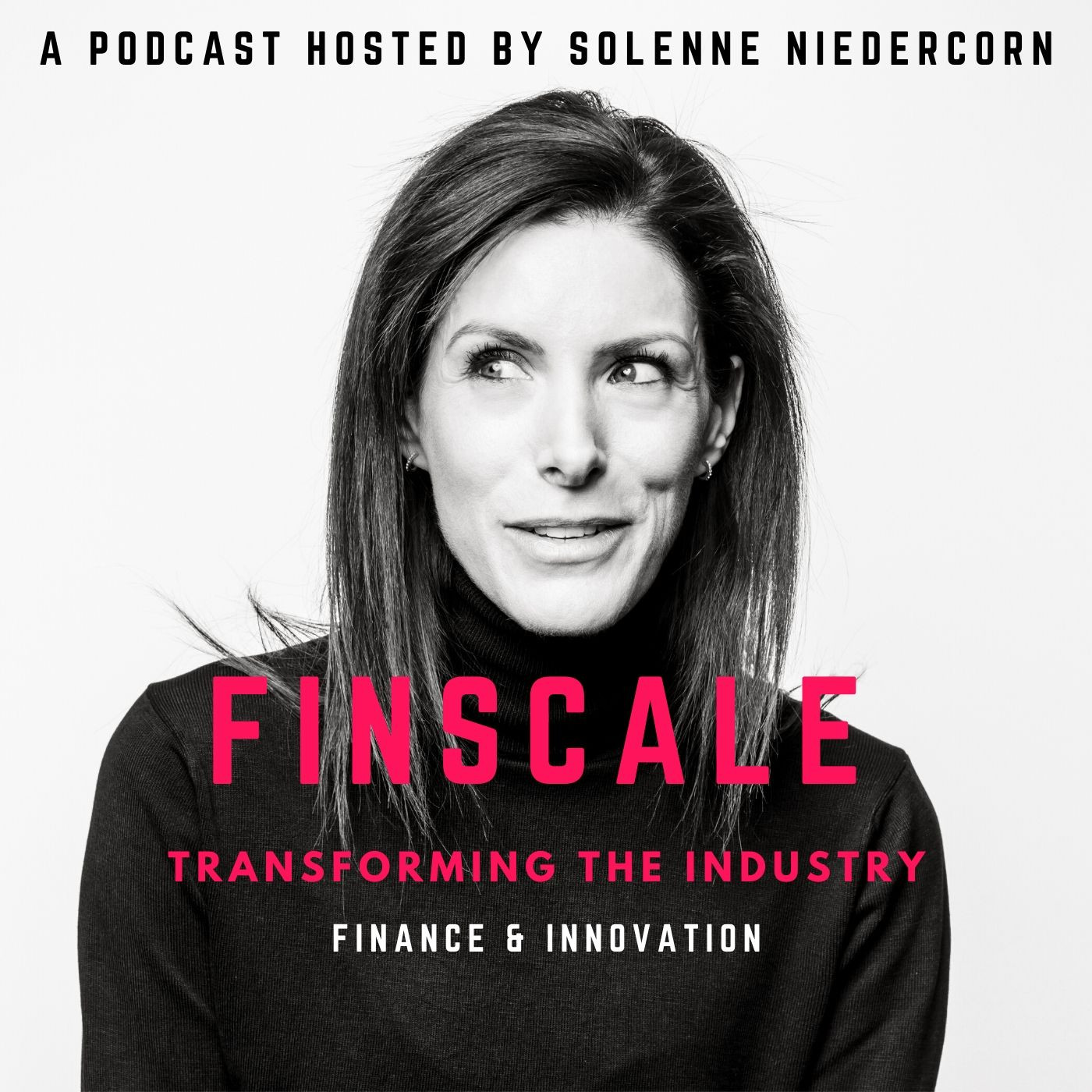
Finscale
#154 - J.D. Guyot and M. Galibert (Memo Bank) - Decarbonizing the economy through banking
Description of the episode
Glad to invite Jean-Daniel back to my podcast. This time, I associated Michel, its co-founder, with our discussion to come and talk to us about the environmental responsibility of the financial sector and about Memo Bank's commitment to the fight against climate change. They present their carbon footprint to us, they share their vision of the industry and how we can all work to transform it. You will thus discover that the Banque de France is a very good student and sets an example whether it is its investment portfolio or through climate criteria in their rating. I also had to take stock with them of the growth, profitability and scaling of this Bank, set up from scratch 4 years ago. Jean-Daniel details the steps taken since his first stint on Finscale, the way in which the scale-up was structured to promote and accelerate rapid and efficient growth. You will understand that the focus of Memo is the Product. A Technology at the service of customers that we dissect in detail. It is not for nothing that Memo is increasingly becoming the main bank for its customers.
Finscale # 153

Finscale
#153 - Morgan O'Hana (Defacto) - From factoring to BNPL BtoB, Defacto breaks the ceiling
Description of the episode
When we hear that factoring represents 18% of GDP in France, we feel that there is a very good development opportunity for this young start-up created by former colleagues from Spendesk. Morgan breaks down the value chain for us and explains in detail the needs of SMEs for short-term financing. Deploying an easy-to-use API, Defacto makes it possible to obtain financing, transparently in the blink of an eye. We are doing a quick update on the BNPL in 2023, on the notions of B2B checkout, vs BNPL B2B. There is also talk of the collaboration with the Viola Credit fund recently created by the Israeli VC and the upcoming creation of a common securitization fund. We also focused on partnerships with FinTechs on the international deployment strategy and on the evolution of the typology of customers. Finally, we understand Defacto's long-term strategy and you will still see that risk plays a central role in it!
GDIY # 310

Generation Do It Yourself
#310 Jade Francine & Caroline Lamaud Dupont - Entrepreneurship and maternity leave: the importance of finding your balance
Description of the episode
Jade Francine & Caroline Lamaud Dupont This episode was born from a subject as universal as it reveals inequalities: maternity at work. During this 3-voice conversation, Caroline Lamaud Dupont, Co-founder and Chairman of the Board of Directors of Anaxago, and Jade Francine, Co-founder and CEO of WeMaintain, candidly share the joys, difficulties and revelations they have found before, during and after their maternity leave. We discover two life trajectories that constantly intersect. Both entrepreneurs and in a relationship with one of their partners, Caroline and Jade have chosen to undertake in resolutely masculine environments: fintech and the maintenance of real estate equipment. When you become a parent, you remain an entrepreneur. In this sense, maternity leave encourages us to review the notions of freedom and balance. Then there is the famous letting go and the misses that allow you to do better the next time. They also discuss how companies like Caroline and Jade's are taking up this crucial subject. From this episode emerge many lessons shared with humility, which do not only affect mothers: When does maternity leave come as a moment of exchange with the teams, redirection and development for a company? Why is freedom of speech about motherhood good (at work) and not so good (in the media)? How to pick up during your parental leave without feeling out of the game professionally (and manage your impostor syndrome)? What approach for a fair distribution of tasks? How to see parenthood at work as a winning HR lever? We can think that women entrepreneurs have greater freedom vis-à-vis motherhood. This episode frankly reveals the questions that plague women entrepreneurs, and a less publicized vision of parenthood.
The Martingale # 151
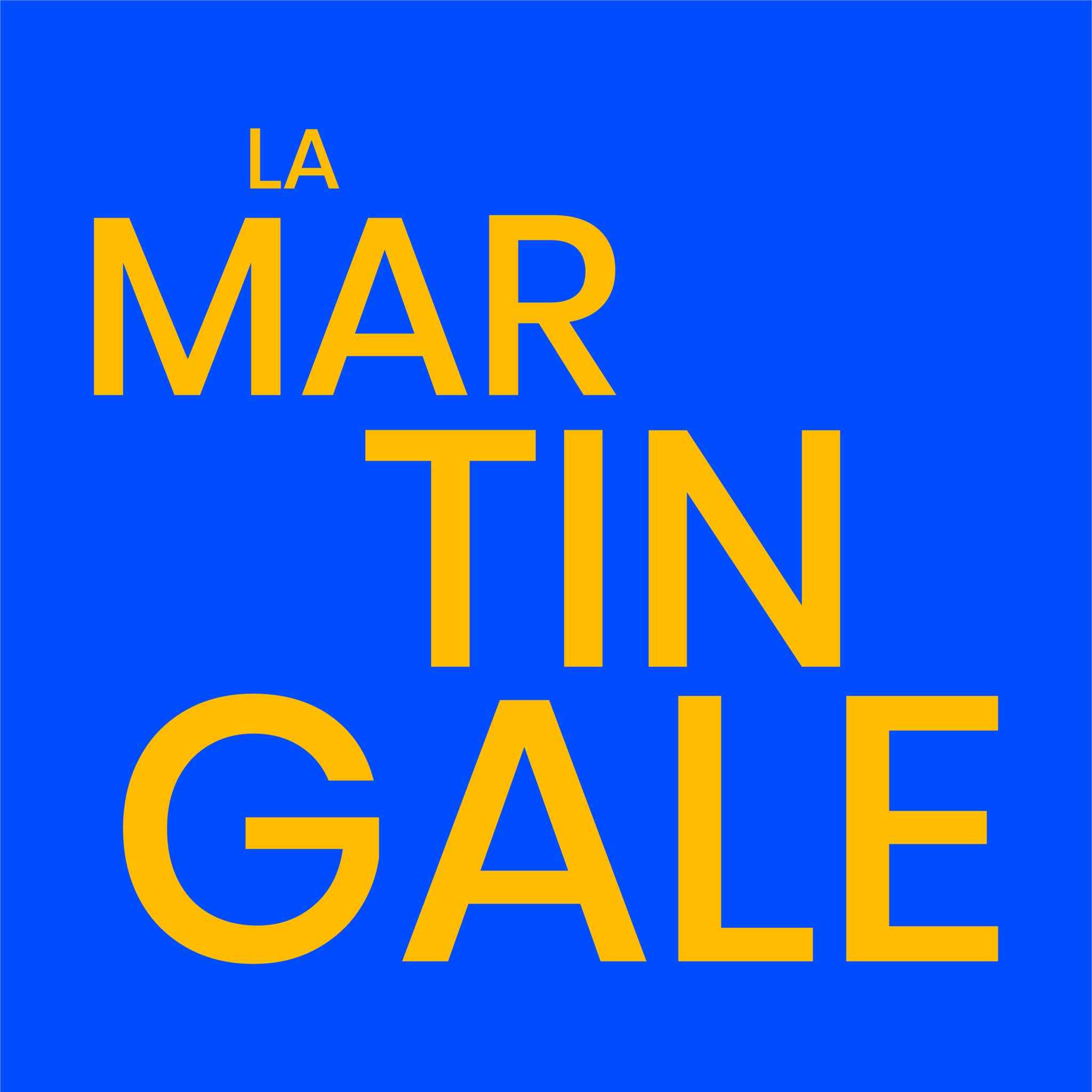
The Martingale
#151: Nadim Takchi - Livret P • Should you go into debt to get rich with rental real estate?
Description of the episode
When you want to use your debt capacity to invest in real estate, you often hesitate between buying your main residence and investing in rental property. The second option is interesting because it allows you to build up wealth while generating additional income. But, it requires a lot of effort: property search, negotiations, discussions with banks, work, tenant management, etc.
Nadim Takchi (CEO of Livret P) embarked on his first rental investment at the age of 25. Nadim makes maximum use of its borrowing capacity and follows a rigorous investment methodology. Barely six years were enough for him to build up a heritage of 13 real estate properties.
At the microphone of Matthieu Stefani, co-founder of CosaVostra, Nadim shares with us his method of rental investment based on debt.
## Why is it worth going into debt to invest in rental property?
Obtaining a bank loan to invest in rental property allows you to benefit from a powerful leverage effect: the rents collected make it possible to cover all or part of the loan maturities. Result: the property is self-financing and the investor can even succeed in generating a positive cash flow (when the rent is higher than the loan repayment deadlines).
It is an excellent way: to broaden one's assets; prepare for retirement; and create additional income.
## Stock market vs Rental real estate: Nadim's opinion Nadim prefers to invest in rental real estate. According to him, the return is more interesting, safe and creates value.
He gives us the following example: a person has €10 in savings. It can either invest them in the stock market or use them as a contribution to invest in real estate.
Scenario 1: she invests her €10 in the stock market and obtains a very high return of 000%. Annual profit: €2.
Scenario 2: She borrows €100 and invests in real estate (using her €000 savings for her contribution). His apartment gives him a 4% net return. Annual profit: €4.
Scenario 2 (more pessimistic than the first) produces a result twice as important. Knowing that real estate is less fluctuating than the stock market.
## Good practices for investing in real estate thanks to a bank loan Here is the list of good practices highlighted by Nadim during our episode: When you want to invest in a big city, take taxi rides, and ask questions to drivers. They know the best neighborhoods in town!
Once you have targeted a specific neighborhood, go chat with merchants and residents. This is a good way to make sure the neighborhood is a good place to invest.
Use your debt capacity to the maximum, to invest and benefit from an optimal leverage effect.
Focus on “liquid” properties: they must be able to be rented at the right price quickly and be sold under the best conditions (quickly and without loss of value).
Go through a broker to get the best possible loan.
When visiting, ask to go first. If you like the good, make an offer very quickly.
When you find a property to buy, ask different real estate agents what they think of the selling price. Some may offer you a similar property for a better price.
Buy without condition precedent: it is very risky, but if your situation allows it, it reduces the cost of acquisition.
Always negotiate the purchase price and the borrowing rate, in order to benefit from the best possible conditions.
You can follow Nadim on LinkedIn and discover Livret P here.
Pros: Good news! With the code MARTINGALE, you benefit from 10€ offered during a first investment at Livret P. And you will receive the Excel file used by Nadim for its rental investments.
Finscale # 141

Finscale
#141 - Olivier Rull (Caravel) - The ethical retreat brought up to date
Description of the episode
A little reminder in this conversation on the three pension plans, the notions of Insurance and Banking PER and the constraints faced by savers when setting up and leaving their retirement plan. Caravel really aims to simplify this heritage strategy. We speak with Olivier specifically about the first phase of this start-up's life, in particular the search for the partner insurer, the creation of the "no code" platform, the recruitment of the first customers and the choice of support media. 'investment. Caravel's objective is really to create an ethical and responsible pension fund that offers a better retirement to everyone in a livable world. We therefore end with a central value for Caravel, which is that of ethics!
How I Met My Co-Founder – Defacto
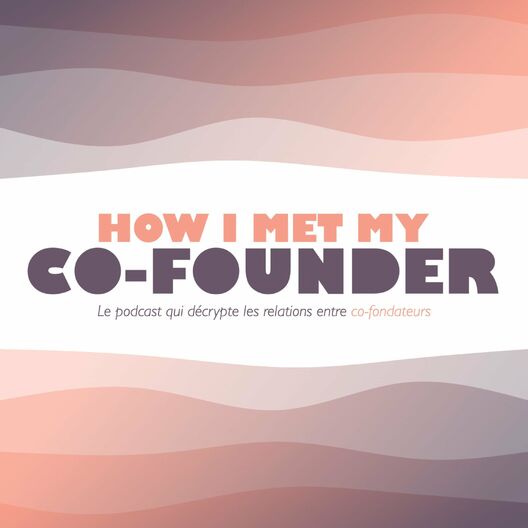
How I Met My Co-Founder
Jordane, Morgan & Marc-Henri Co-founders of Defacto
Description of the episode
Recreating a startup after building a unicorn is the story of Jordane who - with Morgan and Marc-Henri - is developing Defacto, a fair and instant financing solution for SMEs. For this new episode of the How I Met My Co-Founder podcast, I welcome them to discuss with them: - Their first meeting in California for Marc-Henri and Jordane and the "Chinese restaurant" brainstorms to do ideation - Their matrix concept with the following criteria: B2B project, international market, replacement market, product-led acquisition strategy, high barrier to entry - The customer discovery phase which began with the Spendesk adventure where Jordane and Morgan - MBTI type tests/50 questions to open the discussion and get to know each other professionally - The role of routines in their relationship as co-founders with 2 meetings per week (Monday/Friday) + 1 offsite per quarter - Their method of 3-way decision-making with a scoring method - The 2 equity fundraisings with GFC (David Sainteff), Headline (Jonathan Userovici) and Northzone - Their debt raisings first with Business Angels then with Viola Credit - Their first recruitment (cc Antoine Cheron) and their reverse recruitment process - The structure of their team (without head of) and their desire to stay lean.
Finscale # 131

Finscale
#131 - Edouard Mandon (Numeral) - Automating and streamlining payments
Description of the episode
After great experiences in start-ups and scale-ups, Edouard decided to undertake. Co-founded with Logic Founders, Numeral enables businesses to send, receive and reconcile payments through their banks with a single API and Dashboard. It is a technical discussion, but not only accessible and fascinating. As I like to understand in detail, I asked Edouard to describe the Spendesk and Swile "use cases" to us to take what has been deployed, but also to perceive their value proposition and their USP. We cover many topics: the contribution of Logic Founders, the new customer integration project, the productization of banking integrations, maintenance, the European Payments Council, the business model… This in-depth discussion also brings us to talk about FinTech choices leaving their BaaS provider and its consequences. Finally we talk about market evangelism, development strategy and building an ecosystem.
Finscale # 129

Finscale
#129 - Josh Kaplan (Wilson Sonsini) - From scaling in payments to IPOs [ENG]
Description of the episode
A conversation that covers many topics, from scaling a business in payments to Twitter and the timing of IPOs. In this episode, I speak to Josh, a banking lawyer who worked at the US Federal Reserve, Deutsche Bank, Crédit Agricole and Bank of America before joining the FinTech world at Checkout.com, the payment processing company. Josh takes us through the macro and micro steps Checkout.com took to prepare for their international expansion when he was COO. He uses Saudi Arabia as an example, providing insight into how the team was assembled, core functions established, and local teams deployed. We look at the benefits of deploying from Europe, where a standard of excellence is established in the key areas of anti-money laundering and data protection. We learn that data has always been key to their scaling, and get a first-hand look at how it's processed to be very efficient at resolving bottlenecks very fast. We also dive into their regulatory strategy for expanding outside of Europe. Josh joined Wilson Sonsini, a tech-focused US law firm, a few years ago and we learn about their relationships with big tech companies like Netflix and Apple. Discovering a start-up history, from its formation as a legal entity to more complex litigation cases, is a special treat. You'll also learn about the key roles that these top notch advisors play. If you want the inside scoop on IPOs, we pinpoint the exact timing required to make it a success.
How I Met My Co-Founder – Leocare

How I Met My Co-Founder
Christophe & Noureddine - Co-founders of Leocare
Description of the episode
Christophe (CEO) and Noureddine (CTO) met 12 years ago at Niji. In 2017, they decided to launch Leocare, the first all-in-one neo-insurance. In this discussion, we discuss: - Their meeting at Niji and their departure to create Leocare - The ideation phase carried out with a group of 150 people close to Christophe and Noureddine - Communication between them and with the team - The first recruitments and the choice of having 2 offices (Rennes and Paris) - Series A and Series B fundraising
Finscale # 126

Finscale
#126 - Yann Magnan (73 Strings) - Revolutionizing the "valo" to make life easier for funds
Description of the episode
Unknown to most, the job of vaporizer plays a central role in the valuation of assets and in the life of funds. To fully grasp the challenges of this critical function, we return with Yann to the concepts and standards in place in the different valuation contexts following asset categories and geographies. We understand that the evaluation work is unfortunately still based on spreadsheets where the risk of error and the use make it particularly inefficient. This is where it gets interesting: friction, risk of error, data to collect and manage, regulations and tedious processes. All the ingredients are there to put some Tech in it. We study concrete practical cases of NAV calculation in VC and Private Equity and see where and how the 73 strings value proposition fits into this whole chain from data collection to evaluation. Yann tells us about the Advisory Board, the first customers like Eurazeo, audibility features, the business model and relations with a whole series of players: service providers, independent vaporizers, GPs, Consultants, Banks As always, we will end with the vision of this young start-up which has a lot to bring to the entire finance industry: from companies to asset managers.
Inside the mind of a CEO # 61
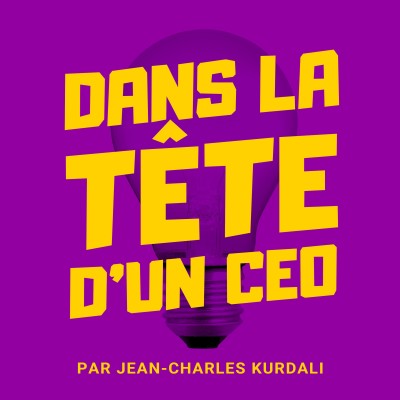
Inside the head of a CEO
#61 Gabriel Thierry (Karmen): On his transition from VC to entrepreneur, financing and the Karmen solution: Revenue-based financing & more.
Description of the episode
“We raised funds so you don't have to” This week we are bringing you a new inspiring conversation. We had the great pleasure of welcoming Gabriel Thierry, co-founder & CEO of Karmen, who answers Yacine Sqalli's microphone. 🎙 Karmen is the Revenue-based financing solution: they offer loans to all eligible companies, in less than 48 hours! With Karmen, you unlock immediate cash flow that boosts your performance, while maintaining full control of your business. The fintech has been in business for more than a year, has already raised €22m to finance its client companies, and employs around twenty people. 🚀 In this episode, we talk about: 🎙His long experience in the USA, and how he started working (for free) in Venture Capital 🎙The mentality in the USA - the "yes, can do" attitude 🎙The parallel between entrepreneurship and sport as a team: "I am 200% one of those who want to start as a team" 🎙 How he met his co-founders: Baptiste Wiel at the Master in trepreneurship X-HEC, then Sébastien Lubineau on LinkedIn 🎙 Their fundraising & the paradox of financing boxes that do not lift 🎙The sinews of war: real-time data via APIs, and the new scoring criteria 🎙His taste for entrepreneurship: "We like the hassle otherwise we wouldn't do that" 🎙The international ambitions: Southern Europe 🎙 Competition and how to stand out in a sustainable way 🎙 Lots of other topics! Good listening to all ! 🎧 Check out their site! 👉 https://www.karmen.io/ Thank you Gabriel for this exchange! 🙏
Inside the mind of a CEO # 58

Inside the head of a CEO
#58 Mark Kepeneghian (Kriptown): On creating a stock exchange, inspiring and helping entrepreneurs, and much more.
Description of the episode
First podcast of Season 4 of Dans la tête d'un CEO! 🤩 For this new episode, we had the pleasure of welcoming the talented Mark Kepeneghian, CEO and founder of Kriptown, who answers Yacine Sqalli's microphone for 1 hour. 🎙 Kriptown is THE Neo-Bourse for startups and SMEs. They offer everyone the opportunity to participate in the financing of startups and SMEs by investing in liquid form. ✊ Thanks to the use of its private blockchain, Kriptown democratizes access to fundraising by providing for each fundraising a standardized whitepaper on the company (inspired by the AMF prospectus) validated by three trusted third parties. Once the lifting is finalized, investors can buy or resell their tokens on the Kriptown platform! Kriptown is thus a new form of investment called ITO ▶️ Initial Token Offering. In this episode, we talk about: 🎙 His background, his lack of involvement in school, and his move to the US 🎙 How he accidentally became an entrepreneur 🎙 The role of financial markets in our society 🎙 The importance of controls and due-diligence of securities listed on Kriptown 🎙 Its "giveback" culture: how and why to help entrepreneurs? 🎙His fundraising of €1,35M, and why startups lie about the numbers 🎙The impostor syndrome 🎙Ambitions for the future and the international 🎙The galleys of an entrepreneur to find accommodation 🎙Plenty of other topics! Good listening to all ! 🎧 Check out their site! 👉 https://www.kriptown.com/ Thank you Mark for this conversation! 🙏
